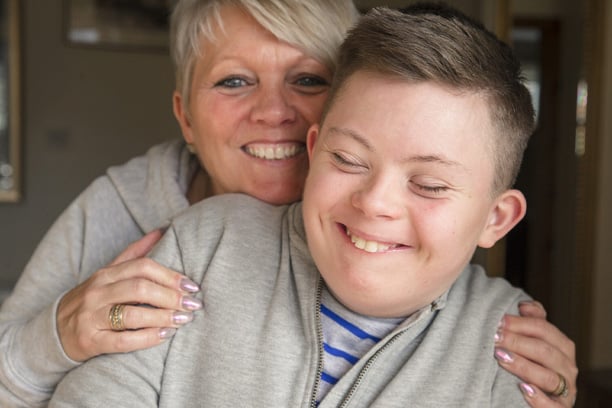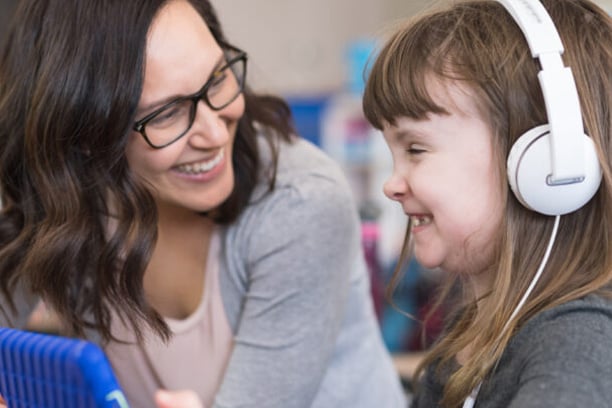Other SEN
(Executive Function Skills, Hypermobility, Trauma, Down’s Syndrome, Mutism)
How can the tutors support children with Other Special Educational Needs?
The label ‘Special Educational Needs’ encompasses a wide range of conditions which affect how a young person is able to participate in the education system. However, there are also certain subtle aspects of a child’s development which can affect their ability to learn, as well as a few less-common conditions – all of which contribute to their profile of special needs.
Problems with Executive Function
‘Executive function’ is a term describing a set of cognitive skills that enable people to plan their time, organise their workload and exercise self-control. They also help people to focus, remember instructions and undertake several activities at once. Unsurprisingly, this know-how is a crucial component of everyday life as well as studying and passing exams.
Problems with executive function are often an integral part of certain SEN conditions, most notably ADHD (attention deficit hyperactivity disorder). You can spot these difficulties very clearly in a child who can’t sit still and calls out in class or who can’t finish a piece of work. However, a child who appears quiet and co-operative may just as easily have trouble with these things though their struggles may be more internal. Impaired executive skills can also feature in autism, dyslexia or dyspraxia.
Medication or cognitive behavioural therapy can help some youngsters to focus and cope with schoolwork. However, difficulty with executive function is likely to persist for life.
Hypermobility
People with hypermobility have joints with a wider range of movement than other people of the same age. Although it might not sound like much of a problem, it can lead to pain, tiredness and injury in some people though others – dancers, for example – may find it advantageous. Hypermobility is more common in children and adolescents, and Afro-Caribbean and Asian people, and often improves with age.
In some cases, however, hypermobility is a symptom of a more serious health disorder. There are a number of these conditions, each of which has its own features. Ehlers-Danlos, for example, is a group of syndromes affecting collagen (a component of stretchy tissue) in different parts of the body such as blood vessels, skin, eyes, joints or even gums. Stickler syndrome affects a person’s facial features plus their sight and hearing.
Hypermobility syndromes often occur alongside autism. As you might expect, they can make it difficult for children to participate in PE lessons at school unless the teacher has specialist knowledge.
Trauma
A traumatic event is one that is so distressing to an individual that it has a lasting effect on their mental, emotional or physical health. Trauma can be caused by many things – from witnessing war or a natural disaster to suffering abuse or discrimination or the death of a family member.
The UK Trauma Council estimates that more than one in three people have been exposed to at least one traumatic event by the time they reach eighteen. Witnessing trauma, they say, can affect how a young person’s brain develops, with the risk that they will develop mental health issues in later life or have problems forming relationships. Each child will face their own, unique challenges and ways of coping.
Unsurprisingly, children who have experienced trauma need to be treated with sensitivity and understanding. It helps if teaching staff are aware of the youngster’s history and are experienced in working with children with emotional and mental health issues.
Down’s Syndrome
Down’s syndrome is a genetic disorder, caused by an extra chromosome, which can occur in people of any race, gender or socio-economic background. It’s an intellectual disability which affects someone’s mental and emotional functions though, as it exists on a spectrum, people who have the condition will each have varying degrees of difficulty.
In addition, it often co-exists with physical issues such as gross motor delay, cardiac problems, blood disorders or auditory or visual impairment. People with Down’s sometimes have a diagnosis of autism as well, often displaying the liking for routine and hyperactivity that come as part of ASD.
Youngsters with the condition generally attend mainstream or special schools but all will require specialised help in order to access education.
The UK Trauma Council estimates that more than one in three people have been exposed to at least one traumatic event by the time they reach eighteen. Witnessing trauma, they say, can affect how a young person’s brain develops, with the risk that they will develop mental health issues in later life or have problems forming relationships. Each child will face their own, unique challenges and ways of coping.
Unsurprisingly, children who have experienced trauma need to be treated with sensitivity and understanding. It helps if teaching staff are aware of the youngster’s history and are experienced in working with children with emotional and mental health issues.
"My daughter is aged 15 with Down’s Syndrome. We discovered Becky who has been absolutely amazing at supporting my daughter over the last few months. She has been incredibly professional, patient and positive with my daughter during their weekly online sessions and we have definitely seen marked improvement in her literacy as the weeks progressed."
Mhairi, C’s mother, Central London


"Game changer for us - this was money well spent; high level of professionalism and expertise. Linda helped our daughter immensely and set us on the right course to meet our daughter’s unique needs. We were previously in the dark as to what style of learning was best suited for our daughter, and what her capabilities could be. Linda not only reassured us our daughter has the capacity to learn, but she also drew upon her in depth experience to give us the tools necessary. Our daughter responded very well to Linda and we couldn’t be more satisfied. "
Marlo, mother in London
Useful Contacts
ADHD UK is a charity that provides information and support on all aspects of the condition including executive function – www.adhduk.co.uk
Contact the Hypermobility Syndromes Association at www.hypermobility.org
The UK Trauma Council is an organisation supporting professionals who work with children with trauma. Contact them at – www.uktraumacouncil.org
Down’s Syndrome Association – www.downs-syndrome.org.uk
Tutor Spotlight

Gemma is a qualified SEN tutor with over 10 years’ experience. She has a passion for ensuring that mental and emotional well-being falls at the heart of people’s ability to learn and grow.
She firmly believes that our development and sense of self grows from that foundation. She works with warmth, compassion and determination to help create supportive and nurturing environments. A story-teller at heart, she is articulate, creative and playful and encourage these skills in those she works with.
She shares her thoughts about how to best support students who have suffered from trauma:
Traumatic events in childhood can lead to difficulties in learning and this is something that needs to be handled very carefully by all adults involved in a student’s education. Trauma can occur for many reasons and can stay stuck within into a state of fight, flight or freeze and we often need support to begin to release this from our body and mind. Having an understanding of the ways in which trauma can affect a student is important. There is no point trying to push someone to learn new facts or skills when they’re mind is in a freeze state, for example, we must first address the freeze, begin to melt it, and then find a way into the learning that is safe. This can be particularly compounded if the trauma a child is experiencing is connected to school or learning. They must first feel safe in their new learning environment or relationship and then they can begin to step gently forwards.
I have supported many children over the years who have experienced a multitude of trauma including bereavement, abuse, bullying, illness and accidents. I have not always known explicitly about the events or situations that traumatised the child – I do not believe this is necessary and sometimes, frankly, it is none of my business – but I have always known about the ways in which it manifests in the student and affects their learning. This is key. Once I know how a student is affected, I can support them to find ways to navigate the effects and find their way back into safe learning.
Gemma’s personal reflection as a parent:
As a parent myself, I have supported my own three children through difficult and traumatic events. They are now all adults and have since reflected back to me some of the things that they found particularly helpful. Firstly, allowing them to have a voice and understanding that they would each need to communicate in their own style and at their own pace. Secondly, being non-judgemental about anything they brought to me; being a safe space for them to be able to share anything. Thirdly, keeping my pain separate from theirs, even when their trauma triggered me, and ensuring I had my own outlet for release; children need to be held by safe adults with good boundaries.
A positive note:
With time and the right care and support, the impact of trauma can be managed and minimised so that the student is able to step forwards with a growing inner sense of safety, confidence and ease.
Sammie is a qualified teacher with 8 years experience working in a SEN school.
She has experience working with children with ASC, PDA, speech/communication needs, ADHD, global developmental delay and Down’s Syndrome.
Below, Sammie shares her experience working with children with Down’s Syndrome.

One thing I have learnt is that is that no two days are the same – but they definitely are lots of fun! My approach to teaching children with down’s syndrome is to ensure that activities are provided that reflect their motivators and special interests. By encouraging your child to engage with activities based on their interests, they do not even realise they are learning and making progress in a way that is fun to them. In addition to this, I have found that clear routines, boundaries and expectations (sometimes it is necessary to break these down into simple steps) can greatly help to support our pupil’s with down’s syndrome.
How can parents/carers help your child with Down’s Syndrome at home?
One thing we all learnt through COVID and the lockdowns was how to be more creative with the resources we have at home to aid learning. So here are some strategies and ideas that you can use at home:
- Gross motor skills can be developed by creating your very own assault course using items from around your home. Use pillows to jump over, chairs or tables to crawl under or you could even use masking tape along a wooden floor to walk along. I’ve used this previously within an activity and I even draped blankets over a table to make it into a dark tunnel.
- Fine motor skills can be worked on when getting dressed. Have some fun dressing up and role playing using it as a great opportunity to practice zips, buttons and laces. If you want an edible activity for any children who like to mouth objects, you could even practice placing cheerio’s on some dried spaghetti, or penne pasta on a lace!
- Singing songs as you complete activities. Within my experience, music has been a common motivator for pupils with down’s syndrome. I have spent many a lesson making up songs about shapes, or colours as we explore a resource. Allowing the children to explore whilst being exposed to the language in a way that interests them may help develop concept knowledge.
- Drawing and mark making can even be taught without pen and paper. If you’re brave enough to get messy, a tray with flour can be a lot of fun. Explore making a range of marks together, starting with simple lines and circles. You can use this to practice letter shapes or even spellings. Cocoa powder is another favourite I use to aid mark making.
Lastly, and possibly most important….
- Be patient – sometimes at home we just want to get things done as quickly as we can, however it is important that when we support a child with down’s syndrome, we give them extra time to process and act on a request.
Other tips and advice
Our children with down’s syndrome are at higher risk of mental health conditions so is important that learning activities are fun and where possible, do not even feel like work. It is important we do not view how to change a child with down syndrome, and instead, we view how we can change to support them.




